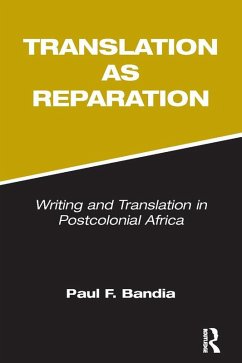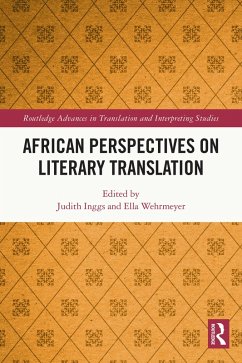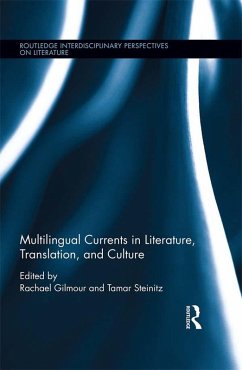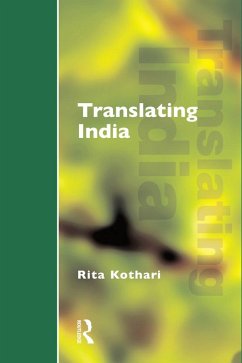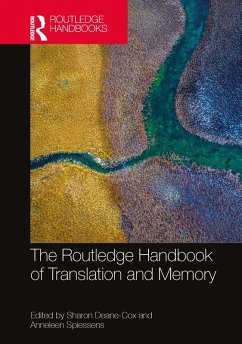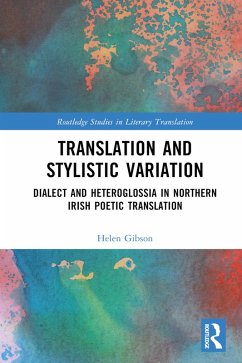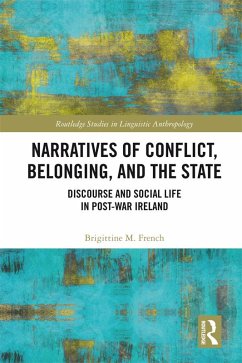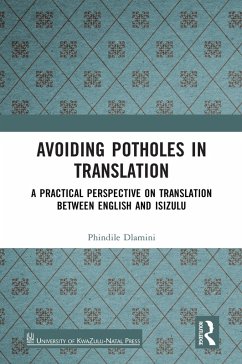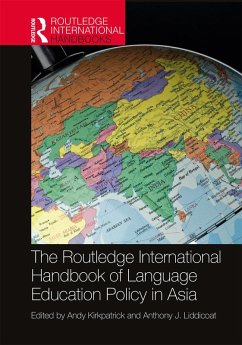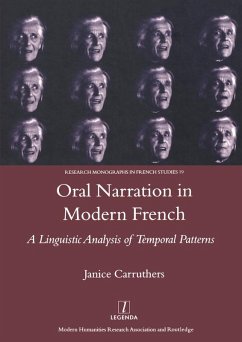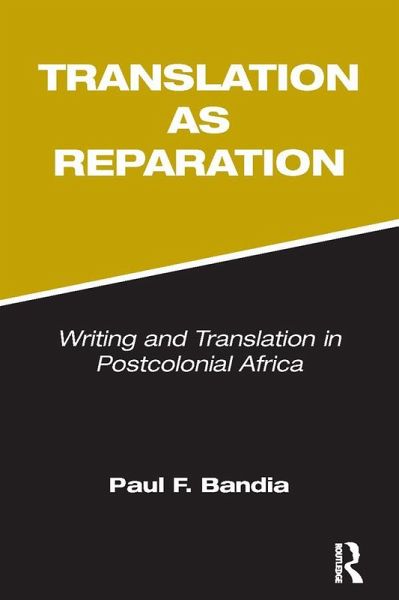
Translation as Reparation (eBook, PDF)
Versandkostenfrei!
Sofort per Download lieferbar
39,95 €
inkl. MwSt.
Weitere Ausgaben:

PAYBACK Punkte
20 °P sammeln!
Translation as Reparation showcases postcolonial Africa by offering African European-language literature as a case study for postcolonial translation theory, and proposes a new perspective for postcolonial literary criticism informed by theories of translation. The book focuses on translingualism and interculturality in African Europhone literature, highlighting the role of oral culture and artistry in the writing of fiction. The fictionalizing of African orature in postcolonial literature is viewed in terms of translation and an intercultural writing practice which challenge the canons of col...
Translation as Reparation showcases postcolonial Africa by offering African European-language literature as a case study for postcolonial translation theory, and proposes a new perspective for postcolonial literary criticism informed by theories of translation. The book focuses on translingualism and interculturality in African Europhone literature, highlighting the role of oral culture and artistry in the writing of fiction. The fictionalizing of African orature in postcolonial literature is viewed in terms of translation and an intercultural writing practice which challenge the canons of colonial linguistic propriety through the subversion of social and linguistic conventions. The study opens up pathways for developing new insights into the ethics of translation, as it raises issues related to the politics of language, ideology, identity, accented writing and translation. It confirms the place of translation theory in literary criticism and affirms the importance of translation in the circulation of texts, particularly those from minority cultures, in the global marketplace.
Grounded in a multidisciplinary approach, the book will be of interest to students and scholars in a variety of fields, including translation studies, African literature and culture, sociolinguistics and multilingualism, postcolonial and intercultural studies.
Grounded in a multidisciplinary approach, the book will be of interest to students and scholars in a variety of fields, including translation studies, African literature and culture, sociolinguistics and multilingualism, postcolonial and intercultural studies.
Dieser Download kann aus rechtlichen Gründen nur mit Rechnungsadresse in A, B, BG, CY, CZ, D, DK, EW, E, FIN, F, GR, HR, H, IRL, I, LT, L, LR, M, NL, PL, P, R, S, SLO, SK ausgeliefert werden.




